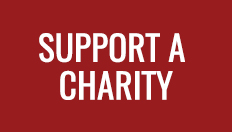 In part four, we discussed the different local credit unions and how their Health Savings Accounts work. Now, we’ll discuss how to select the best credit union based on brokerage account services.
In part four, we discussed the different local credit unions and how their Health Savings Accounts work. Now, we’ll discuss how to select the best credit union based on brokerage account services.
A brokerage account is like a money market account, but from it you can buy stocks, sell stocks or buy mutual funds.So it’s like a health savings account except the money is for investment or portfolio items. Like an HSA, there’s a firewall. The reason – credit and the bank should remain separate.
For example, if you are on your JPWellsComeriBank account online and want to look at your brokerage account, the website will open a new window and take you to that separate brokerage website. With Desert Schools Credit Union, they will personally connect you with a financial services company who will set up your account services, etc. You can set up your account on Desert Schools to make automatic bill pays to your brokerage account, as well. Though you still must login to the brokerage accounts from a different website than your Desert Schools website. The two businesses are separate, but they are more integrated on a personal level.
[image: Tharrin}When I called Desert Schools Credit Union, I was directed to financial services, and spoke with a representative immediately. He told me about what they had, that he’d look at my portfolio, and help me get the changes set up from my national bank. Now, when I did this over at Arizona Federal Credit Union, they directed me to a woman named Stephanie. I left my number for her, but she never called.
From the perspective of a small business owner, credit unions are all basically the same. They have the same fee structure and basically the same offerings. The thing that really differentiates one credit union from another one is customer service. If I own a business, I want my banker to be on the phone and someone who knows me. Why am I leaving JPWellsComeriBank? Because they’re a big anonymous bank. While the fee structure among different credit unions are nice, as well as the integration of health savings account, they’re not critical. The bottom line for me: What was their customer service like?
In wrapping up this series on credit unions, we’ve taken a close look at the difference, we’ve examinatined them in person, we’ve compared the pros and cons. I can sum up the most satisfying part of this process in one example which really captures the essesnce of why I left a big national bank for a local credit union.
The story goes like this:
I went into Wells Fargo to take out my money for the last time and the woman assisting me asked, “Why are you leaving us?”
“Two reasons:” I told her. “I’ve waited too long to put my money where my mouth is and I’m finally going to support a locally owned bank. When I use my money at locally owned businesses, 30% of my money stays in the local economy.”
“But Desert Schools doesn’t have very many ATMs …”
“Are you really playing the ATM card card?”, I asked her, “You know that doesn’t matter. I can just take money out from a cash advance at the grocery store.”
Her response?
“Oh, yeah, I guess so.”
So, there we have it. I thought this process would be longer and more difficult. In some ways it was, but in most ways it is really easy to mover your money to a locally-owned credit union and keep your money where your state is, so to speak.
Good hunting!










Leave a Comment